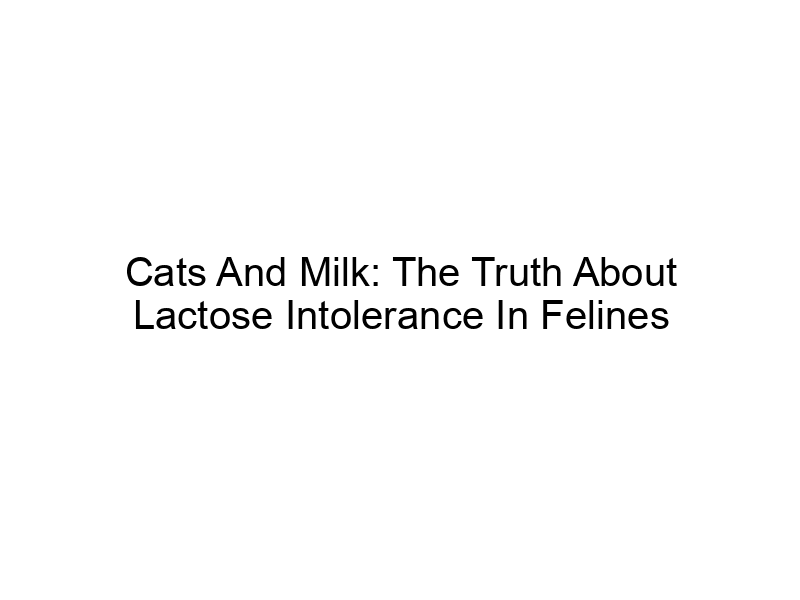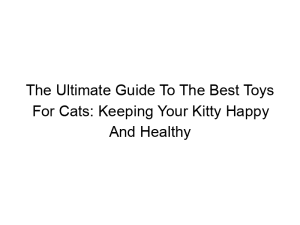We all love seeing a cute cat lapping up a saucer of milk. But is this seemingly innocent scene actually harmful? The Truth About Cats and Milk: Is It Safe for Them? is more complex than you might think. In this comprehensive guide, we’ll delve into the feline digestive system, explore the effects of lactose, and examine the potential health consequences of giving your cat milk. You’ll learn about the science behind lactose intolerance, discover healthier alternatives, and understand how to make informed decisions about your cat’s diet. Let’s uncover the facts!
Lactose is a natural sugar found in milk and dairy products. It’s a disaccharide, meaning it’s composed of two simpler sugars: glucose and galactose. Humans, as mammals, typically produce an enzyme called lactase, which breaks down lactose
into these digestible sugars.
The Role of Lactase
Lactase is crucial for the digestion of lactose. Without it, lactose passes undigested into the large intestine, where it ferments, causing various digestive issues.
Feline Digestive System and Lactose
Unlike human babies who initially produce lactase, most adult cats lack the necessary enzyme to properly digest lactose. This means that consuming milk, even small amounts, can lead to discomfort and potentially more serious health problems.
Why Milk Can Be Harmful to Cats
Lactose Intolerance in Cats
Lactose intolerance in cats isn’t an allergy; it’s a digestive disorder. It’s a consequence of the natural decline in lactase production as they mature beyond kittenhood. The inability to digest lactose results in symptoms ranging from mild discomfort to severe illness.
Symptoms of Lactose Intolerance in Cats
Symptoms vary in severity. Mild cases might show only diarrhea or loose stools. More severe cases can manifest as vomiting, gas, bloating, abdominal pain, and dehydration. In kittens, the effects can be especially pronounced due to their immature digestive systems.
Long-Term Effects of Milk Consumption
Chronic consumption of milk can lead to long-term digestive problems, hindering nutrient absorption and weakening the immune system. This makes cats more vulnerable to infections and other health complications.
Healthier Alternatives to Milk for Cats
Water: The Best Choice
Plain, fresh water should always be readily available to your cat. It’s the healthiest and most essential beverage for feline hydration.
Cat-Specific Milk Substitutes
Many commercially available cat milk substitutes are lactose-free and fortified with essential nutrients. Look for options specifically designed for feline consumption. These products are formulated to be gentler on their digestive systems.
Other Healthy Drinks (in Moderation)
While water is ideal, small amounts of diluted unsweetened broth or lactose-free yogurt (in moderation and only if your cat tolerates it) can offer additional hydration and beneficial nutrients.
Debunking Common Myths about Milk and Cats
Myth 1: All cats need milk.
FALSE. Most adult cats do not require milk in their diet and can experience negative effects from consuming it.
Myth 2: A little milk won’t hurt.
FALSE. Even small amounts can cause digestive upset in lactose-intolerant cats. The level of lactose tolerance varies significantly from cat to cat.
Myth 3: Kitten milk is okay.
Partially TRUE. Kitten milk is specifically formulated to provide necessary nutrients for young cats. However, even kittens can develop lactose intolerance as they grow older. The introduction of other nutrients should take place with your veterinarian’s guidance.
Choosing the Right Food for Your Cat
Commercial Cat Food
High-quality commercial cat food provides a balanced diet containing all the necessary nutrients. Always choose food appropriate for your cat’s age and health condition. Look for brands that prioritize high-quality ingredients and avoid artificial additives.
Home-Cooked Diets (With Veterinary Guidance)
Home-cooked diets should only be prepared under the guidance of a veterinarian to ensure they meet all nutritional requirements. Improperly balanced homemade food can lead to serious health problems.
Supplementing Your Cat’s Diet
Consult your veterinarian before introducing any supplements to your cat’s diet. They can assess your cat’s nutritional needs and determine if any supplements are necessary.
When to Consult a Veterinarian
Recognizing Serious Symptoms
If your cat exhibits severe symptoms like persistent vomiting, diarrhea, dehydration, or significant weight loss after consuming milk or other dairy products, consult your veterinarian immediately.
Addressing Underlying Health Issues
Persistent digestive issues may indicate an underlying health problem. Your veterinarian can conduct tests to rule out other medical conditions.
Frequently Asked Questions
What happens when a cat drinks milk?
If a cat drinks milk and is lactose intolerant, the lactose remains undigested, causing fermentation in the large intestine and leading to symptoms like diarrhea, gas, vomiting, and abdominal discomfort. The severity of the symptoms depends on the amount of milk consumed and the cat’s individual sensitivity.
Can kittens drink milk?
Kittens can digest milk more easily than adult cats because they produce lactase. However, as they mature, their lactase production decreases, and they may start to show symptoms of lactose intolerance. Providing them with a proper kitten-specific formula ensures their nutritional needs are met.
Are there lactose-free milk alternatives for cats?
Yes, several commercially available lactose-free milk substitutes are specifically formulated for cats. These products typically contain added nutrients and are gentler on their digestive systems than cow’s milk. Always check the ingredients and ensure the product is designed for feline consumption.
My cat loves milk; how can I wean them off?
Gradually reduce the amount of milk you offer, replacing it with water or a lactose-free substitute. The transition should be done slowly to avoid stress. Positive reinforcement with treats or playtime can help during the weaning process.
Final Thoughts
The truth about cats and milk is clear: for most adult cats, milk isn’t a healthy choice due to widespread lactose intolerance. While a small amount might not cause immediate harm in some cats, the risks of digestive upset and long-term health complications outweigh any perceived benefits. Prioritizing fresh water and providing a balanced diet through commercial cat food or a veterinarian-approved home-cooked meal is crucial for maintaining your feline companion’s health and well-being. Choosing the right food, understanding your cat’s specific needs, and consulting your veterinarian when necessary will ensure a long and happy life for your furry friend. Remember, their health is your top priority, so make informed choices that support their overall well-being.




